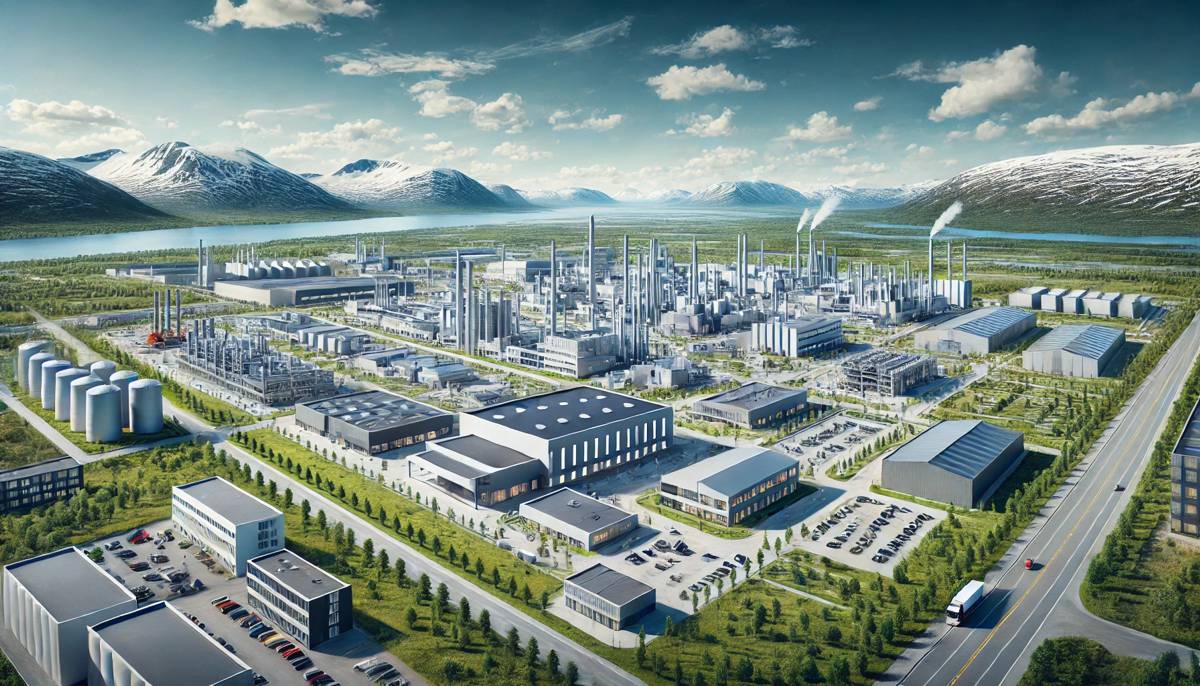Industrial Park in Luleå to Pioneer Europe’s Critical Mineral Self-Sufficiency
In a ground-breaking move, Swedish mining giant LKAB has filed an environmental permit application to establish an Industrial Park in Luleå.
This facility aims to process phosphorus and rare earth elements—resources critical to Europe’s agricultural, energy, and digital sectors. Once operational, the Industrial Park could meet seven times Sweden’s phosphorus needs and significantly boost the EU’s self-sufficiency in critical minerals. This initiative stands as a cornerstone of Europe’s drive to reduce its reliance on imports and secure a sustainable future.
Darren Wilson, Senior Vice President of LKAB Business Area Special Products, highlighted the importance of the project, stating: “This application is the culmination of four years of dedicated work. It represents an important milestone for the region, Sweden, and Europe’s resilience. By extracting phosphorus and rare earth elements from material we already mine, we can strengthen our future competitiveness while securing critical minerals needed for the green transition.”
Why Phosphorus and Rare Earth Elements Matter
Phosphorus is indispensable for producing mineral fertilisers, a linchpin for food security across Sweden and the EU. Rare earth elements (REEs), on the other hand, are integral to manufacturing permanent magnets used in electric vehicles (EVs) and wind turbines—essential technologies for electrification and digitalisation. Despite their importance, Europe currently has no domestic production of REEs, relying entirely on imports.
The geopolitical climate and Sweden’s commitment to achieving net-zero emissions by 2045 underscore the urgency of securing these materials. Wilson elaborated: “The EU is entirely dependent on imports of phosphorus and rare earth elements, which it classifies as critical raw materials. This application is crucial for enabling a future investment decision for full-scale production in Luleå.”
The Heart of Sustainable Innovation
LKAB’s planned operations in Luleå will utilise by-products from its iron ore production in Gällivare, turning waste streams into valuable resources. The Industrial Park will initially produce phosphorus and rare earth metals, with gypsum as a by-product for the construction industry. Over time, the facility will scale up, aiming for full-scale operations by the 2030s. The production is estimated to supply eight per cent of the EU’s phosphorus demand, marking a transformative leap for Europe’s resource independence.
Carina Sammeli, Chair of the Municipal Board of Luleå Municipality, applauded the initiative, saying: “LKAB’s environmental permit application is another step towards the development of the full-scale industrial park in Luleå. The production of these critical minerals is essential for our society and provides an opportunity to create new jobs for the future.”
Environmental and Community Impact
Establishing the Industrial Park is no small feat. The application submitted to the Land and Environmental Court outlines the environmental footprint of the operations, including resource use, emissions, transport, and noise. It also addresses land and water impacts, such as constructing a new quay and reclaiming land to expand the production area. LKAB has engaged with the local community through multiple consultations to ensure transparency and address concerns.
The proposed timeline includes a main hearing by May 2026, with a court decision expected later that year. These steps are critical for the project’s progression, setting the stage for a transformative industrial operation that balances environmental stewardship with economic growth.
The Demonstration Plant: Laying the Groundwork
In October 2024, LKAB committed SEK 800 million to build a demonstration facility in Luleå. This plant will verify processes for producing critical minerals and serve as a blueprint for scaling up to full production. Expected to be operational by the end of 2026, the facility is a pivotal step in Europe’s journey towards resource self-sufficiency.
Results from the demonstration plant will inform future decisions, alongside the environmental permit for LKAB’s apatite operations in Gällivare. Together, these projects promise to revolutionise how Europe sources and utilises critical minerals.
The EU’s Strategic Vision
The European Union classifies phosphorus and rare earth elements as critical raw materials due to their economic significance and supply risks. Currently, Europe imports 90 per cent of its phosphorus, with Russia being a major past supplier. For rare earth elements, the dependency on China’s dominance in the global value chain poses a strategic vulnerability.
By turning waste streams into valuable resources, LKAB aligns with the EU’s Critical Raw Materials Act, which seeks to enhance the bloc’s resource autonomy. The company’s projects in Gällivare, Luleå, and Kiruna—including the Per Geijer deposit rich in rare earth elements and phosphorus—are positioned as Strategic Projects under this initiative.
A Vision for Sustainable Mining
LKAB’s commitment to sustainability is unwavering. By leveraging innovative technologies and processes, the company aims to develop carbon-free products and transform the mining and minerals industry by 2045. Darren Wilson summed up the mission, saying: “We’re not just mining; we’re rethinking what mining can achieve for a sustainable future.”
This ethos is reflected in LKAB’s operational model, which prioritises recycling and minimising waste. The Industrial Park in Luleå exemplifies how industry can align with environmental goals while driving economic growth.
Building a Greener Future
As Europe races to achieve climate targets and strengthen its resource independence, LKAB’s Industrial Park in Luleå stands as a beacon of innovation. By producing critical minerals from existing waste streams, the project not only addresses supply chain vulnerabilities but also sets a precedent for sustainable industrial practices.
The road ahead is challenging, but with the right partnerships, policies, and community support, LKAB’s vision could redefine the future of mining and resource management in Europe.





























